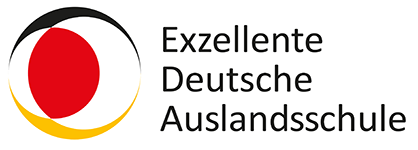The image of the child and the role of pedagogical specialists
Children are born discoverers, inventors and researchers, who deal with their environment in an active and creative way. From birth onwards they observe and analyse very closely. Their findings and conclusions form the basis for their understanding of their environment and of themselves. They pursue their interests in a curious and committed way and, in doing so, develop more and more complex and effective cognitive strategies and competences. Children are able to and want to take responsibility for their own lives.
In order to be able to develop appropriate coping strategies in challenging life situations, the child needs primarily supportive reference persons. Continuous, appreciative relationships during childhood, the experience of autonomy and safety and of comfort and self-efficacy enable the child to enter into reliable and emotionally open relationships later in life, and these have a positive effect on the child’s entire educational and developmental process. Parents, specialists and teachers, attachment figures, children and adults, help the child understand the world. They offer the child an experiential space, pose challenges, ensure conditions and fulfil an important function as a role model. At the German International School in Doha, we enter into a relationship with children in our daily work that is marked by a climate of appreciation and trust. We pay attention to their needs and interests.
Principles of educational processes in the kindergarten of the German International School Doha
The implementation of our educational programmes is based on the principles listed below :
Holistic approach and learning with all senses: Learning is a holistic process involving body and mind. Holistic education processes are geared to the overall personality of children by addressing their senses as well as their socio-emotional, cognitive and motoric skills.
Individualization: Each child is unique in its developing personality, its social and cultural background, its needs and learning potential and its developmental pace. In terms of individualization, the right of every child to learn in his or her own special way and in his or her own rhythm is taken seriously. The individual learning requirements of each child is determined through systematic observation and documentation and becomes the starting point of the planning and execution of educational offers.
Differentiation: Differentiation drives our presentation of educational opportunities in everyday life, providing different forms of learning and to the layout of education resources employed. We take each child’s individual talents, abilities and interests into account.
Lifeworld orientation: Children have different kinds of life experiences and learning experiences. Educational processes that relate to these kinds of experiences motivate children to engage in autonomous learning. New information can be linked with something known or familiar to help reinforce the educational processes.
Diversity: Diversity refers to individual differences such as gender, skin colour, ethnicity and social origin. The encounter with diversity is a prerequisite for the openness to deal critically with prejudices.
Participation: Participation in kindergarten means that children take part in the decision-making process at various levels of every-day life in kindergarten. Kindergarten teachers take the wishes, interests and ideas of children seriously. Children are involved in the planning of activities and in the formulation of rules.
Transparency: The transparent design of educational activity aims at making the complexity of educational practice more transparent and easier to understand for parents and the public. As far as the work with children is concerned, transparency means that intentions and correlations become transparent.
Learning partnership: These are cooperative relations between the kindergarten of the German International School Doha and the families of the children as well as with external experts. Our aim is to jointly create a learning- and development-friendly environment for the benefit of every child.
Overview Kindergarten concept:
> Our Mission Statement
> Educational Orientation
> Daily Routine
> ”Open Work“
> Facilities
> Younger and older children under one roof
> Room and time to rest
> Areas of Education
> Learning experiences in the game
> Children in the last year in kindergarten
> Public relations
> Observation and Documentation
> Quality Assurance
This post is also available in: German




